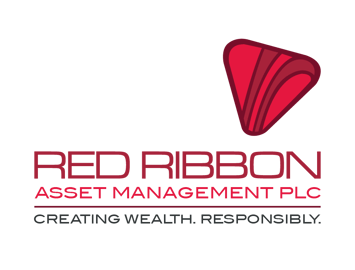What does it matter? …Well it matters a lot
Here’s a statement of the obvious: as best we can, most of us want to be as happy tomorrow as we are today or, better still, even happier. Most of us, that is, save for the unhappy and obsessive few saddled with a short-term event horizon ( Donald Trump springs to mind). For the rest of us, though, achieving happiness or at least basic contentment is a continual work in progress: a process to be embarked on afresh on a daily basis. And here’s the point: none of us can do that on our own because there are no more unchartered regions of the earth, and there’s nobody (or almost nobody) that we can’t talk to anywhere, anytime we want by simply picking up a mobile or clicking on a mouse, and, in particular, nothing we can possibly do in our individual pursuit of happiness that won’t impact on someone, somewhere across the globe. There’s no longer anything to be done on our own that we can’t do better together…
As the French poet Paul Valery wisely observed in 1931: “The age of a finite world is beginning…linking together all parts of the Globe and creating an instantaneous solidarity between regions and events” (Reflections of the World Today). And, of course, that was written the best part of a hundred years ago: fast forward to today, and our precious planet is more connected than ever before, far more than Paul Valery would have anticipated: driven forward ever faster by the raw potential of emerging technologies which make us ever more inter-dependant, and perhaps more vulnerable, than ever before.
I remember working as a bright-eyed, almost bushy-tailed youngster in the City of London back in the 1990s, and we were dealing with the tail end of the Lubrizol acquisition of Octel Associates: a major, multimillion pound divestiture of commercial interests previously held by BP, Texaco, Mobil and Shell in the production of lead alkyls. And they weren’t selling up just to make money: lead alkyls were historically added to petrol as an “anti-knocking” agent to prevent misfiring at lower ignition temperatures. But by the mid-1980s, western governments had more or less compelled the withdrawal of leaded petrol from their markets because of its attendant health risks: to name but a few, the debilitating effects of lead compound exposure were known to include increased heart disease, heightened rates of cancer and strokes, and, not least, severe impairment in children’s cerebral development.
And it was this legislative intervention, not commercial insight alone, still less, I imagine, a profound understanding of the health risks involved, that compelled the major oil companies to sell up their near-monopoly interest in lead alkyls: “choosing” instead to pivot towards investment in unleaded gasoline products, So, they left Lubrizol to buy their lead interests. But what, you might reasonably now be asking, was Lubrizol going to do with all that lead?
Well, the simple (cynical) answer is that they sold as much of the stuff as they could into countries that didn’t yet have a proscriptive ban on leaded petrol: in particular, India (which didn’t introduce a ban until 2000, and China (which introduced progressive regional bans from 1997 onwards and didn’t have led petrol at all until Lubrizol came along in the 1980s)). But in the meantime, a generation of Indian and Chinese children and adults suffered precisely those same health outcomes which had previously afflicted the Western public, and all because of a complex web of individual (and especially corporate) decision-making aimed wrongheadedly at making lives “happier” and balance sheets better in a fast-evolving world.
Connectivity and dispersed externalities inevitably flowed from those decisions: the world had simply become too joined up for that not to be the case. However, turning to another sector altogether and using the same causative factors demonstrate a much happier outcome.
Eco-Tourism
Millions of individual daily decisions are currently being made by tourist and business travellers by reference to a burgeoning level of environmental awareness, which means, in increasing numbers, that travellers are turning to Eco-Friendly Hotels that offer increased environmental protection for our precious planet through active conservation of natural resources, enhanced water and energy conservation, and better adherence with social responsibility standards keying in closely with the needs of local communities.
And when it comes to meeting that burgeoning demand in practice, something much, much more is required than simply re-branding an existing hotel with “green credentials”. Key consumption variables have to be built in from the very beginning of the construction phase: for example, making water saving devices and waste reduction part of the DNA of the hotel from the outset of the construction project.
Because individual decisions matter more than ever in our increasingly complex world, so it’s nice to know somebody’s providing some of the answers.
Eco Hotels
Red Ribbon is the founder of Eco Hotels, the world’s first carbon neutral hotel brand which offers “green hospitality” as part of a progressive roll out across India designed to take advantage of current market opportunities on the subcontinent. The brand meets all key sustainability criteria without compromising on either quality or standards of hospitality and is designed to cater for commercial and recreational travellers alike.
Invest in Red Ribbon Asset Management

Red Ribbon Asset Management (www.redribbon.co) aims to harness the full potential of fast evolving and emerging technologies to meet the needs of global communities as part of a circular economy, fully recognising the compelling demands of planet people and profit.








Leave a Reply